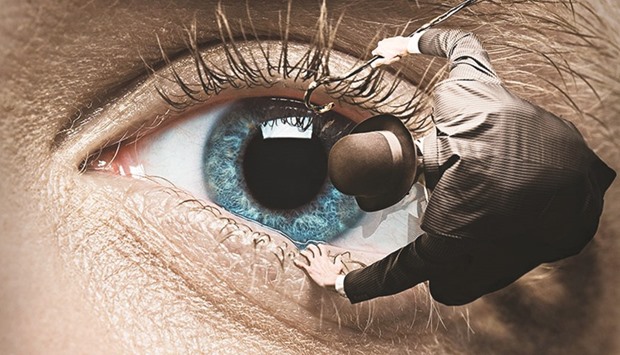Can’t get to sleep? Try online therapy. While a glowing screen is a counter-intuitive cure for insomnia, there is evidence that online cognitive behavioural therapy (CBT) can restore normal sleep patterns.
In a study published in this month’s Jama Psychiatry, an online CBT programme cured 57% of those who used it, compared with 27% who had standard education about insomnia.
Insomnia affects up to half of all people – with up to 20% having a serious problem with getting off to sleep (or falling asleep again if they wake up). Chronic insomnia can last for years – making people feel sleepy during the day and anxious at night.
Standard advice includes promoting “sleep hygiene”: a cool, dark bedroom; going to bed and getting up at the same time every day; and not napping.
After that, it’s face-to-face cognitive behavioural therapy – but there aren’t enough therapists to go round.
This may be why people are still prescribed sleeping tablets that make them feel pleasantly dissociated and are very addictive.
In an editorial accompanying this latest research, Andrew D Krystal from the department of psychiatry at the University of California says it is inevitable that Internet CBT will become the first line of treatment for insomnia.
So should you be asking for it already?
The solution there is evidence from other randomised, controlled trials of the benefit of online CBT.
There are many apps offering insomnia cures, but most have not been tested in proper trials.
The Jama Psychiatry study looked at the Sleep Healthy Using the Internet (SHUTi) programme, which asks users to keep a sleep diary and then produces an algorithm that identifies their “sweet window” (the period of time the person should be asleep). The study’s lead author, Lee M Ritterband from the University of Virginia School of Medicine, says that the first and hardest step is sleep restriction.“It sounds paradoxical but we are looking for sleep efficiency,” says Ritterband.
“People will tell you they are in bed for 10 hours but sleep for six – which is 60% efficient. We are looking for more than 85% efficiency. So if someone only usually sleeps between 2am and 6am, they shouldn’t get into bed before midnight.” Time spent in bed then gets extended as the person sleeps more.
Sleepio is another digital CBT tool that has been evaluated in trials and, like SHUTi, can be bought online.
Sleepio has an animated virtual therapist and also covers sleep restriction, managing intrusive thoughts and suggesting relaxation techniques.
Both Sleepio and SHUTi coach you to break the connection between being awake and being in bed. (Bed is for sleeping and sex, not mobile devices.) Both programmes are shown in studies to have outcomes as good as face-to-face CBT.
Online CBT for insomnia is already available in some parts of the UK.
But if you want to ask your GP for it, or buy it for yourself, make sure you use one backed by research – and remember it will only stand a chance if you are motivated enough to stick to it. – Guardian News and Media

